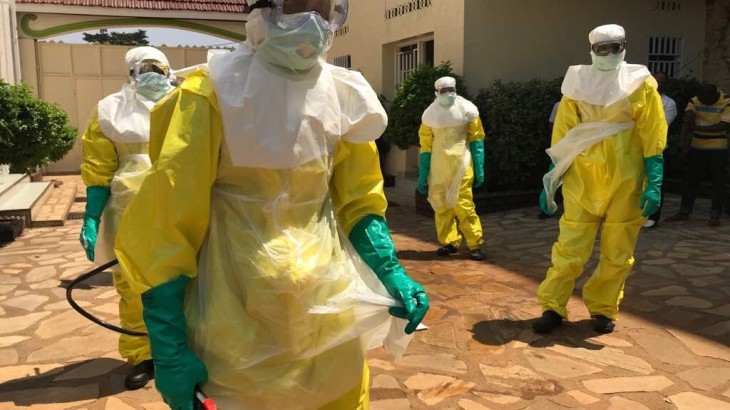Ebola returns to DRC with new challenges

Two weeks ago, on the first of August, the Ministry of Health of the Democratic Republic of the Congo (DRC) declared a new outbreak of the Ebola virus in North Kivu Province in the eastern part of the country.
North Kivu is one of the most populated provinces of DRC and it borders Rwanda and Uganda. The area is also rife with armed conflict and violence that could worsen the impact of the virus.
The World Health Organisation (WHO) is working with the Ministry of Health to strengthen disease control across all response pillars. As of last week, 8th August, 44 cases of Ebola had been reported, of which 17 have been confirmed.
The Ministry of Health has initiated its response with priorities including: strengthening surveillance, contact tracing, laboratory capacity, infection prevention and control, vaccination, community engagement, safe burials, cross border surveillance and preparedness activities in neighbouring areas.
The efforts of WHO and the Ministry of Health are being supported by the International Committee of the Red Cross (ICRC) who are working with the local DRC Red Cross to stop the spread of the virus before it can reach areas where armed groups are present. There are around 60,000 DRC Red Cross volunteers across the country.
Hanna Leskinen, a spokeswoman for the International Committee of the Red Cross commented:
"This will be a highly complex operation because it is occurring in an area that has been embroiled in armed conflict for 20 years"
"People are regularly moving as waves of violence force new communities to flee. This makes tracing infected cases much harder."
Dr Peter Salama, WHO Deputy Director-General, Emergency Preparedness and Response, also noted:
“This new cluster is occurring in an environment which is very different from where we were operating in the northwest”
Last week the Ministry of Health began a vaccination campaign in North Kivu and prepared a vaccination ring in the Mangia health area.
Dr Oly Ilunga, Minister of Health of the Democratic Republic of the Congo, commented on the importance of vaccinations in the response:
“Vaccines are an important tool in the fight against Ebola. This is why it has been a priority to move them rapidly into place to begin protecting our health workers and the affected population”
A total of 3,220 doses of the Ebola vaccine are available in the country, and requests for further doses have been made.
Dr Tedros Adhanom Ghebreyesus, Director-General of the World Health Organization (WHO) praised the response of DRC, who are experienced in dealing with the disease:
“The Democratic Republic of the Congo has once again demonstrated strong leadership in its early response to this outbreak”
The AIDF Africa Summit will return to Nairobi in February 2019.
If you’d like to stay informed on the latest updates in aid and development, please sign up for the AIDF newsletter.
Image credit: International Committee of the Red Cross















